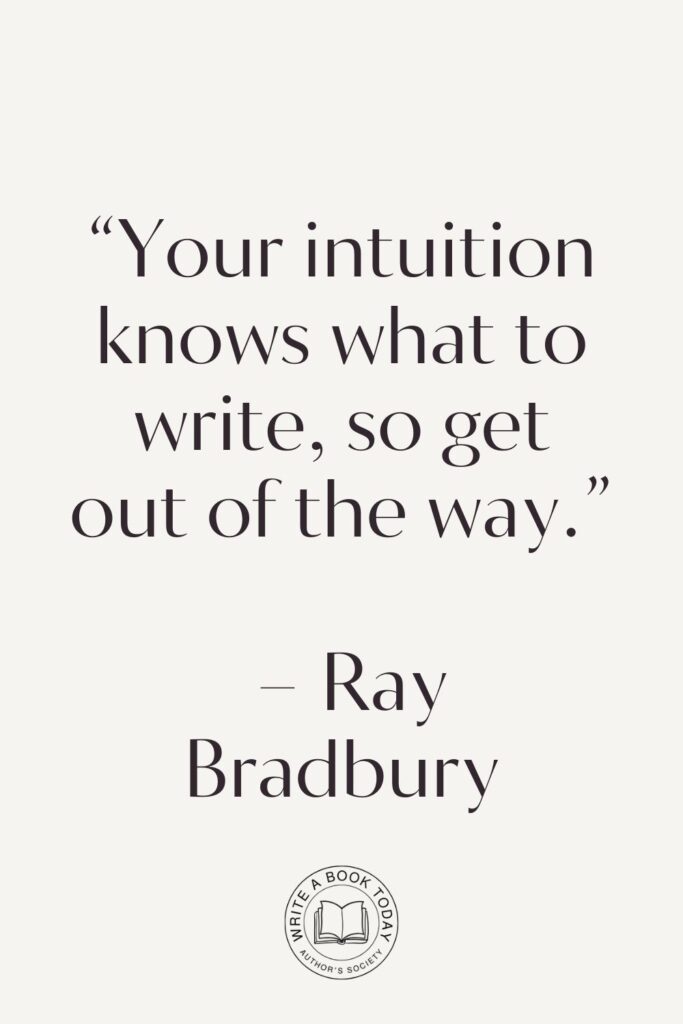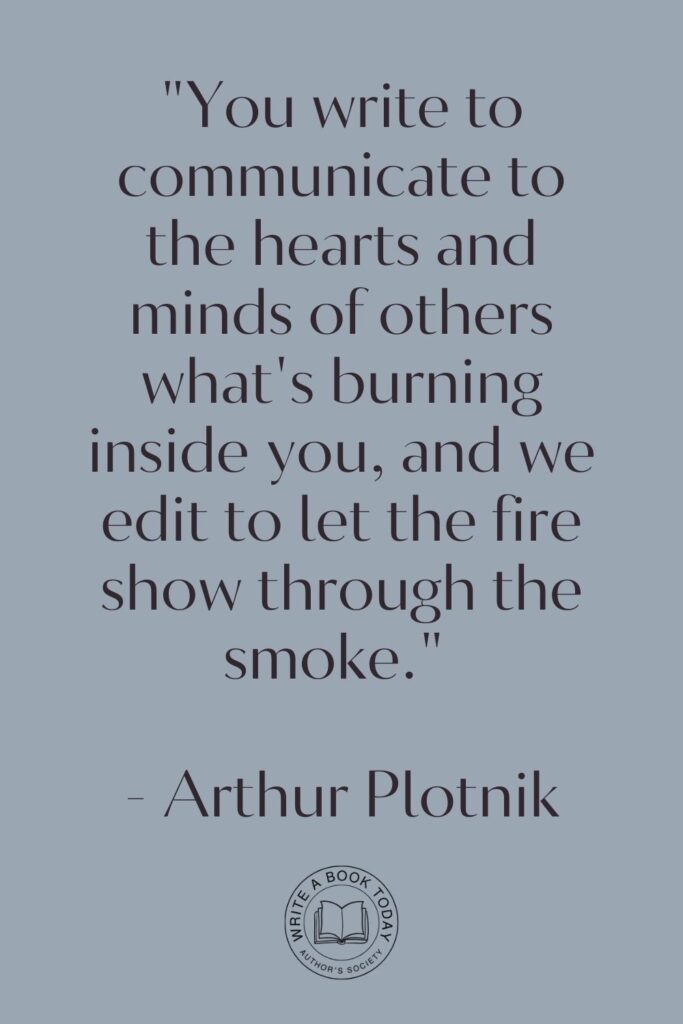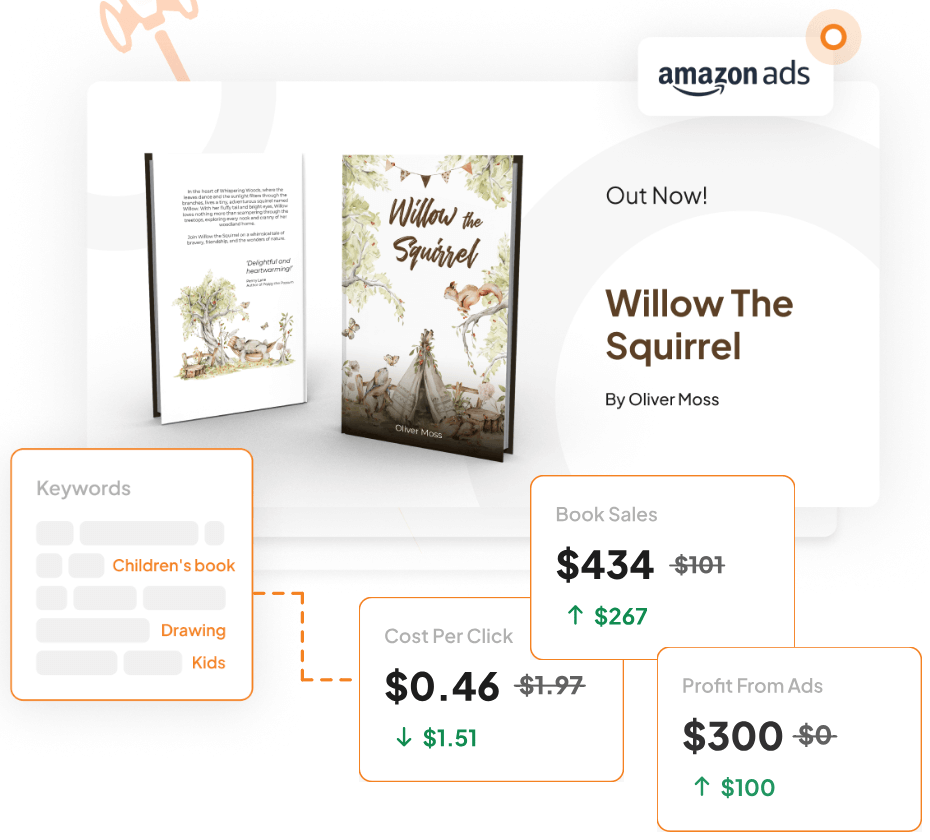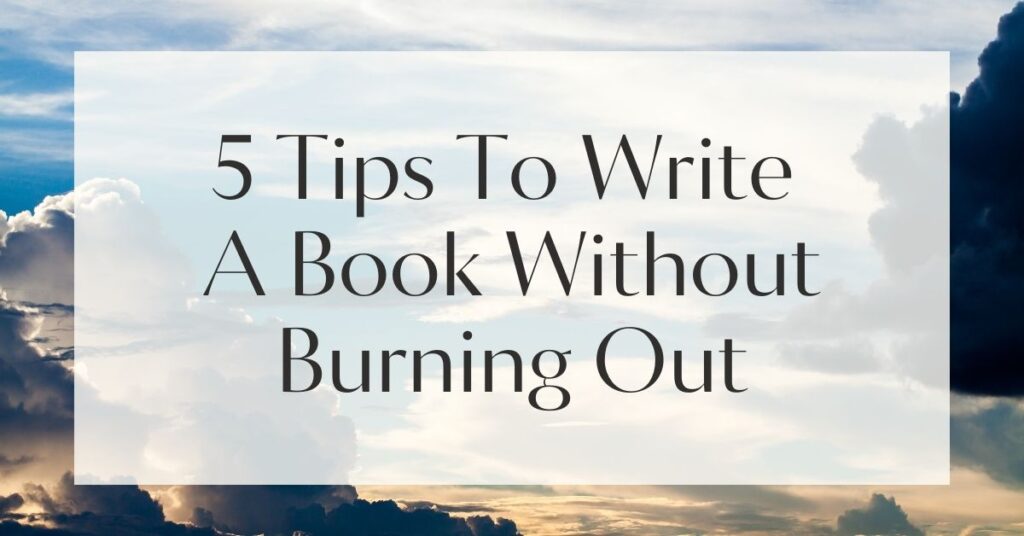Have you ever felt like your creative spark is flickering out, leaving you staring at a blank page with dread? You’re not alone. Many aspiring authors embark on the exhilarating journey of writing a book, only to find themselves overwhelmed and exhausted.
But fear not! This guide is here to help you write a book without burning out. With a sprinkle of humor, a dash of empathy, and a whole lot of encouragement, we’ll explore how you can sustain your creativity while avoiding burnout.
So, grab a cozy seat, perhaps a cup of tea, and let’s discuss these friendly tips for keeping your writing journey joyful and fulfilling.
Understanding Writer Burnout
Before we delve into the tips, it’s crucial to understand writer burnout and how it differs from the infamous writer’s block. Burnout is more than just feeling stuck; it’s emotional, physical, and mental exhaustion that can sap your passion for writing.
What is Writer Burnout?
Writer burnout is a state of chronic fatigue and stress that leaves you feeling disconnected from your writing. It’s when the act of writing feels more like a chore than a creative outlet.
Unlike writer’s block, where ideas seem elusive, burnout means you might have plenty of ideas but lack the energy or motivation to execute them. This condition can be exacerbated by the pressure to constantly produce content, meet deadlines, or achieve unrealistic expectations.
Assess your workload regularly to combat burnout and ensure it aligns with your personal goals and values. If you take on too much, it might be time to delegate or set stricter boundaries.
Google Docs is for notes. Scrivener is for novels. Upgrade your writing game and try it for free today!

Signs You Might Be Burned Out
Recognizing the signs of burnout is the first step towards recovery. Are you constantly tired, even after a good night’s sleep? Do you find yourself procrastinating more than usual, or feeling resentful towards your writing projects?
These are red flags indicating that burnout might be creeping in. Other signs include feeling cynical about your work, experiencing frequent headaches, or a noticeable decline in your writing quality.
The Difference Between Burnout and Writer’s Block
While both burnout and writer’s block can halt progress, they have different roots. Writer’s block is often a temporary hurdle where creativity is blocked due to a lack of ideas or inspiration.
Burnout, on the other hand, is a deeper issue of emotional exhaustion. It requires a comprehensive approach involving self-care and lifestyle adjustments.

5 Friendly Tips for Sustainable Writing
Now that we’ve unpacked what writer burnout entails, let’s explore five friendly tips to keep your creative engine running smoothly.
Tip 1: End Each Session Before You’re Finished
One effective strategy for maintaining enthusiasm for writing is to stop each session before you’ve exhausted your ideas. This might sound counterintuitive, but it makes you eager to return to work the next day.
When you end a session with a clear path for what comes next, you avoid the dreaded “what now?” feeling that can stall your momentum.
Consider this approach like leaving a trail of breadcrumbs for your future self, ensuring you never feel lost when you write again. This technique helps avoid burnout and keeps the narrative flow intact, making your writing sessions more productive and enjoyable.
Tip 2: Prioritize Rest and Refueling
Just as a car can’t run on an empty tank, your creativity needs regular refueling. Prioritize rest as part of your writing routine. This includes taking breaks during writing sessions, ensuring enough sleep, and engaging in activities that rejuvenate your spirit.
Whether it’s a walk in nature, listening to music, or simply daydreaming, find what recharges your creative battery.
Schedule short breaks every hour to stretch, hydrate, and clear your mind. These mini-breaks can enhance your productivity and prevent burnout by keeping your energy levels steady throughout the day.
Tip 3: Establish a Writing Routine
Consistency is key to sustainable writing. Establish a routine that fits your lifestyle and stick to it.
Whether you write in the early morning or late at night, having a dedicated time for writing can help you develop a habit that reduces stress and increases productivity. A routine provides structure, making it easier to dive into your work without the anxiety of when or how to start.
Creating a writing schedule that respects your natural rhythms can also prevent burnout. If you’re a morning person, capitalize on those early hours.
Night owls might find their muse after the sun sets. The goal is to find a rhythm that works for you and makes writing a regular, yet enjoyable, part of your day.
Tip 4: Embrace Creative Breaks
Incorporate creative breaks into your routine to keep your imagination fresh.
These breaks don’t have to be related to writing; they could involve painting, cooking, or any other activity stimulating your creativity. Such activities provide a mental reset and can often spark new ideas or solutions to writing challenges.
Try setting aside time each week for a creative hobby unrelated to writing. This not only refreshes your mind but can also inspire new perspectives and ideas for your writing projects.

Tip 5: Set Realistic Goals and Boundaries
Ambitious goals can drive you forward, but they can also lead to burnout if they’re unrealistic. Set achievable goals that challenge you without overwhelming you.
Break larger tasks into smaller, manageable pieces and celebrate each milestone you reach. Additionally, establish boundaries to protect your writing time from external distractions and obligations.
| Goal Type | Description | Example |
|---|---|---|
| Daily Goal | Small, achievable task for each day | Write 500 words |
| Weekly Goal | Larger task to complete by week’s end | Finish one chapter |
| Monthly Goal | Significant milestone in your project | Complete first draft |
Nurturing Your Creativity
Creativity is like a garden; it flourishes when tended to with care and attention. Let’s explore ways to nurture your creative spirit.
Engaging in Other Creative Outlets
Exploring different creative outlets can enrich your writing. Engaging in painting, music, or cooking can offer new perspectives and fuel your imagination. These activities allow your mind to relax and wander, often leading to unexpected insights and ideas.
Feeling lost with your debut novel?
Fiverr Pro connects you with expert editors, designers, and marketers – everything you need to get your book ready for success!

The Importance of Self-Care
Self-care is not a luxury; it’s a necessity for sustaining creativity. Prioritize activities that promote your physical and mental well-being.
Exercise, meditation, and adequate sleep are essential components of a healthy lifestyle that supports creative endeavors. Taking care of your body and mind creates a fertile ground for ideas to grow.
Creating a Supportive Writing Environment
Your writing environment can significantly impact your productivity and creativity. Create a space that inspires and comforts you.
This could mean decluttering your desk, adding plants, or ensuring good lighting. A supportive environment minimizes distractions and allows you to focus on your writing with clarity and purpose.

Inspiring Stories from Fellow Writers
Learning from others who have faced similar challenges can be incredibly motivating. Let’s delve into some real experiences and lessons learned from fellow writers who overcame burnout.
Real Experiences with Burnout
Many writers have shared their journeys through burnout, offering valuable insights and encouragement. For instance, one writer described how stepping away from her manuscript to explore photography reignited her passion for storytelling.
Another found solace in community writing groups, which provided support and accountability.
No marketing platform? No social following? No problem!
Publisher Rocket helps you market your debut novel like a pro.
It’s a gamechanger for debut authors – try it today!


Lessons Learned from Overcoming Burnout
Overcoming burnout often leads to profound personal growth. Writers who have navigated this challenge emphasize the importance of balance, self-compassion, and adaptability.
They remind us that setbacks are temporary and that resilience is built through perseverance and learning from each experience.
Final Thoughts on Writing Sustainably
Writing a book is a marathon, not a sprint. You can write a book without burning out by incorporating these tips and nurturing your creativity.
Remember, taking breaks, setting boundaries, and seeking support is okay. Celebrate your progress, no matter how small, and stay connected to the joy that writing brings.
With patience and persistence, you can craft a story that captivates readers and honors your creative journey. Happy writing!








